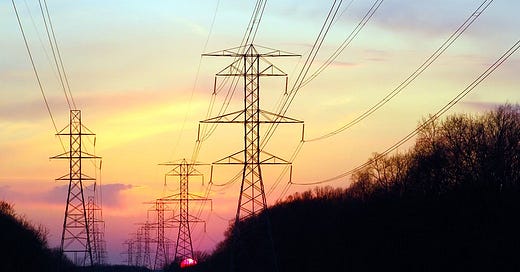For the Trump administration, everything is an emergency
Ironically, the U.S. government is now calling coal-fired generation an emergency.
JEREMY WALLACE
The people of Los Angeles and other cities are protesting the Trump administration’s aggressive wave of ICE raids. And the administration is raising the stakes by militarizing its attempt to crack down on protesters. This escalatory spiral highlights a principal tactic of the administration – a reliance on declaring an emergency.
Much of the policy action in Trump’s presidency to date has taken place through executive orders. The legal basis and authority of these orders has frequently rested on the concept of emergency powers, and the claim that the White House must address an urgent threat.
Trump has expanded the idea of emergency
Over much of U.S. history, presidents declared emergencies under their constitutional authority as commander in chief – or on the basis of laws delegating such authority to the president as chief executive officer. Congress, however, revamped the system of emergency powers in the late 1970s. This created a statutory regime under which presidents can declare national emergencies, and Congress can regulate them.
But Trump has stretched the idea of emergency to act in ways he sees fit without bothering with Congress. The convoluted journey of this year’s “liberation day” tariffs is almost impossible to follow, but the underlying authority by which Trump announced them was based on a declaration of emergency. The first words of the White House fact sheet describes the “emergency” as based on “Large and persistent annual U.S. goods trade deficits” but the term “persistent” clearly suggests something that is long-running, rather than an emergent situation.
In the past two months, the U.S. tariffs were paused and pulled, then ruled illegal by the Court of International Trade, though the Court of Appeals for the Federal Circuit issued a stay allowing the tariffs to remain on the books – though still paused at the 10% level rather than the allegedly ChatGPT-generated menu of different rates for different countries.
Coal’s decline … is now an emergency?
Trump administration officials also used emergency powers to protect coal-powered electricity generation. Of course, many Americans have long called for labeling the climate crisis – not coal-burning plants – an emergency. The recent flare-up relates to Secretary of Energy Chris Wright issuing an emergency order to keep open a Michigan coal power plant that had been scheduled for retirement. Michigan regulators and grid officials, however, deny the existence of an emergency or shortage of power.
The emergency order is particularly odd. Typically, the Department of Energy is responding to a request from the locality in question, but that did not happen in this case. This particular Michigan facility, the J.H. Campbell plant, had been deferring maintenance as it was expecting permanent retirement on May 31, 2025. It also had not been placing orders for coal to burn, and many of its workers had been reassigned, since everyone had expected the plant to be shut down.
The markets have determined coal’s decline
Coal, the dirtiest fossil fuel, has seen its share of electricity generation drop rapidly for over a decade. This decrease is mostly because of the declining cost of natural gas due to fracking, though increasingly coal and all fossil fuels are being replaced by clean electricity generated from renewables. Trump and his administration’s affinity for coal, one reporter suggested, seems motivated mainly by aesthetics, and the masculine energy of miners in hard hats. However, keeping this facility open by emergency order is likely to raise the cost of electricityfor the people of Michigan and pollute their air without any reliability benefit.
Secretary Wright also issued a second emergency order in late May, about a Pennsylvania power plant that can burn oil or natural gas. That plant that was also scheduled to be retired.
Autocratic moves and the climate emergency
It’s too early to tell how the Trump administration’s declarations of emergency in the power sector – and elsewhere – will play out. In the larger discussion of climate change, Nomi Claire Lazar and I argued for resisting the temptations of eco-authoritarianism – the idea that actions ignoring democratic institutions are needed to address climate change. Our article in the Journal of Democracy lays out these arguments. We’ve also engaged in a fruitful back and forth with a number of other political scientists who provided comments. As we put it:
Democracy in fact possesses unique resources that make it better, not worse, than authoritarianism at dealing with emergencies and crises. Calls for antidemocratic solutions to climate-related problems should be resisted. Energy’s centrality to the climate problem does make for genuine challenges in democratic contexts, but authoritarianism is not the answer.
Trump’s recurring resort to emergency is a reminder of the importance of democratic institutions solving problems.




